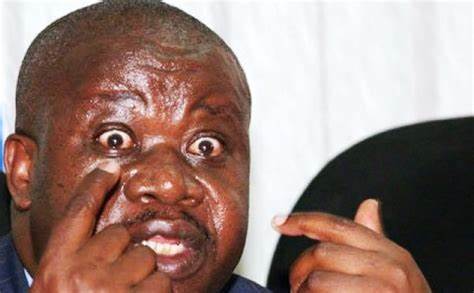Maj Gen Kahinda Otafiire epitomizes the nauseating hypocrisy and corruption entrenched in President Museveni’s National Resistance Movement (NRM) regime. Otafiire has wallowed in the luxuries of power since the NRM’s ascendancy in 1986. His recent sermons on fighting corruption are not just laughable—they are a slap in the face to every Ugandan who has endured the NRM’s tyrannical rule.
Otafiire’s career is a testament to the festering rot within the NRM. As a Cabinet minister since 1988, with only brief interruptions, he has been a constant beneficiary of the regime’s plunder. While thousands of Ugandans languish in unemployment, and many resort to falsifying their ages just to survive a few more years in the workforce, Otafiire’s luxurious ministerial position remains untouchable. Newcomers to the Cabinet can only look on with envy at Otafiire’s seemingly immortal tenure.
Now, in a grotesque display of hypocrisy, Otafiire is attempting to rebrand himself as a champion of the people, urging the youth to rise against corruption. This is the same man who has feasted on the spoils of the very corruption he now decries. His sudden moral awakening stinks of opportunism. “We fought not to enrich ourselves,” he proclaims, “but to correct the wrongs in our country.” Such rhetoric is hollow, a desperate bid to distance himself from the rampant corruption that has defined his career.
Otafiire’s comments have ignited discussions among young Ugandans, many of whom are planning a march on Parliament—a building rightly dubbed a “crime scene” due to the relentless corruption within its walls. Speaker Anita Among, along with former Cabinet ministers Maria Goretti Kitutu and Agnes Nandutu, have already been sanctioned by the UK and US governments. Yet, amid this cesspool of corruption, Otafiire’s words ring hollow, a contradictory mix of truth and falsehood aimed at pacifying the masses without spurring genuine change.
Do not be deceived by Otafiire’s theatrics. He echoes sentiments long held by those disillusioned with Museveni’s regime, sentiments captured in the scathing titles of books by former allies: *The Struggle for Freedom & Democracy Betrayed* by Miria Matembe, *The Betrayal* by Sam Kelega Njuba, *Betrayed by My Leader* by John Kazoora. Unlike these authors, who had the integrity to break away from the regime, Otafiire clings to his ministerial post with a vice-like grip.
For Otafiire to possess any credibility, he needs the support of his fellow Bush War comrades and the army. However, the pressing question is whether the army shares his view on corruption or if they too are complicit in the status quo. Historically, the security forces have shown little interest in challenging the regime. If they remain indifferent, Otafiire’s grandstanding will achieve nothing.
This is the crux of Uganda’s tragedy: words without action. For decades, outspoken critics of Museveni’s dictatorship—Bobi Wine, Miria Matembe, Ibrahim Ssemujju Nganda, Stella Nyanzi, Betty Nambooze—have been reduced to mere noise. They talk, they protest, and then they are silenced or sidelined. Museveni knows this cycle well. He has seen it play out with Bidandi Ssali, James Rwanyarare, Cecilia Ogwal, and Aggrey Awori. They criticized, they retired, and now they are largely forgotten, their fiery words extinguished by the relentless grind of NRM’s machinery.
If Otafiire is serious about fighting corruption, he should start by resigning from the very government that epitomizes it. His current stance is laughable, a contradiction in terms. How can a senior Cabinet minister, engorged on the spoils of corruption, urge the youth to fight the system he upholds? It is akin to a thief lecturing on the virtues of honesty.
Ugandans must ask themselves: what does Otafiire’s newfound activism mean in the grand scheme of things? Is it a genuine call to action or just another NRM ploy to placate the masses while the looting continues unabated? The youth have rightfully commended Otafiire for his words, but words are not enough. Real change requires action, and until Otafiire puts his money where his mouth is, he remains part of the problem, not the solution.
Otafiire’s hypocrisy must not go unnoticed. It should fuel the fire of discontent among Ugandans, sparking not just discussions, but tangible actions against the corruption that has crippled the nation. It is time for Ugandans to demand more than empty rhetoric from their leaders. It is time to hold them accountable and dismantle the corrupt system that has kept them in power for far too long. The youth must rise, but not just at the behest of hypocrites like Otafiire—they must rise for themselves, for their future, and for Uganda.







Discussion about this post